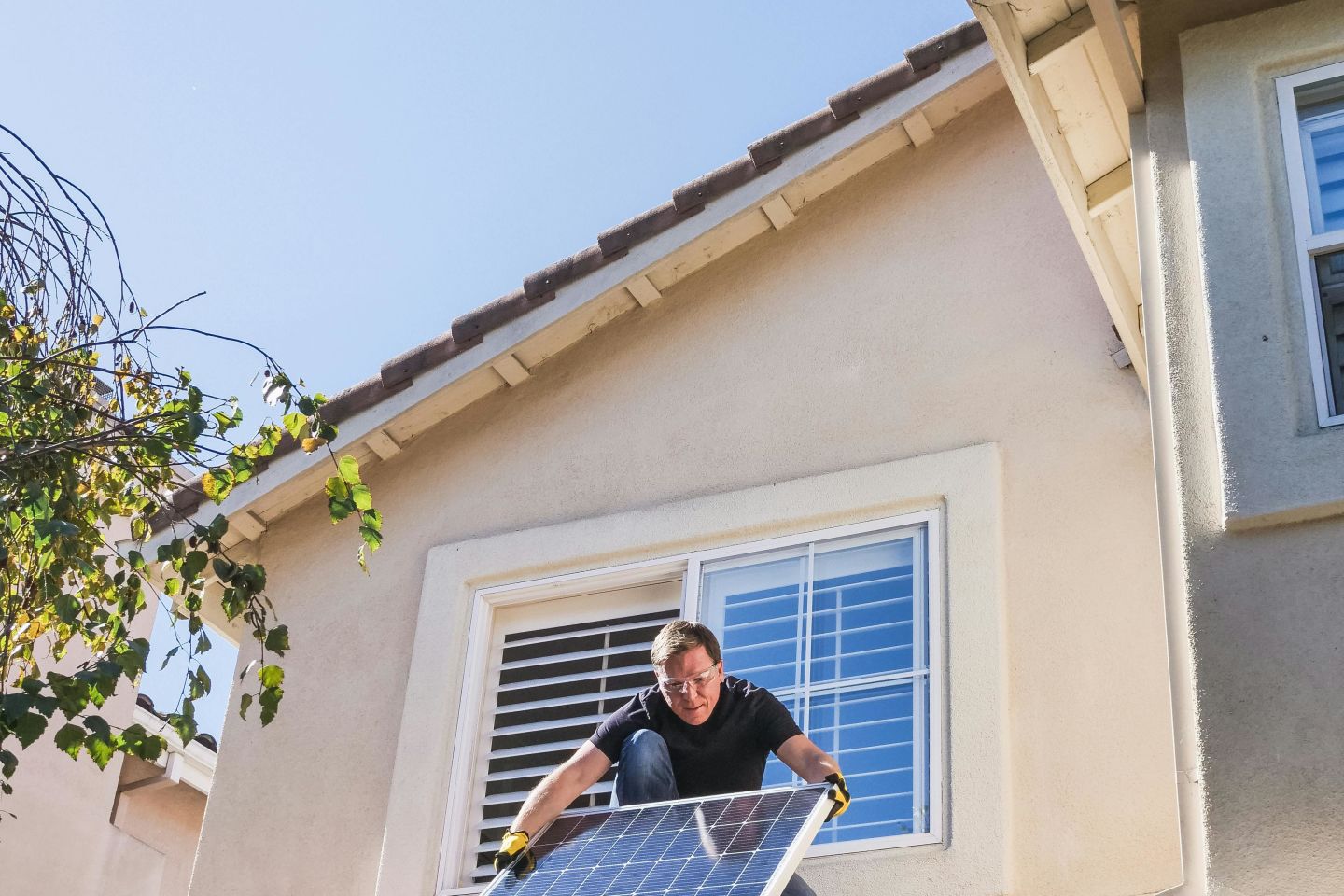Electricity industry warned to put consumers first
Households with solar and batteries are paying 40% less and now there’s a push to aggregate the power generation into virtual power plants. But beware of these complexities before signing up.

What is a virtual power plant?
Thousands of household solar and battery installations are being aggregated into virtual power plants (VPPs) to help stabilise the electricity grid, harnessing the collective power of household energy assets, and enabling power companies to better regulate and supply power into the grid as, and when, needed.
By aggregating thousands of individual home batteries, VPPs allow energy to be speedily injected into the grid to address frequency and voltage imbalances, local disruptions, or disturbances. This keeps the network stable.
Through these projects, operators can remotely deploy energy from participating households for a range of services, such as responding to energy shortfalls, providing frequency control ancillary services, and network support.
Households are rewarded for participating, generally through direct payments or bill credits.
Read NSA’s submission on the NSW retail energy markets here.
The increasing popularity of households using solar and battery energy systems has led the consumer watchdog to warn consumers to do their homework and energy providers not to rip them off.
The Australian Competition and Consumer Commission (ACCC) is warning battery and solar suppliers and electricity retailers their sales practices must meet scrutiny as government subsidies help provide households able to afford solar and battery systems with large savings.
These savings can be even higher where households agree to provide power from their batteries back into the network, called a virtual power plant (VPP).
The ACCC supports additional consumer protections to safeguard consumers purchasing systems and signing up to new energy services such as VPPs. It also supports calls for an overarching consumer duty that requires energy companies to act in the interests of consumers.
“We believe additional consumer protections are needed as more Australians participate in markets for new and emerging energy services,” ACCC commissioner, Anna Brakey, said.
The ACCC’s latest Electricity Inquiry Report examines emerging markets for new electricity services, including solar and battery systems, and compares the electricity bills of solar and battery customers with the bills of regular customers who draw only from the grid.
The report found that the Australian Government’s Cheaper Home Batteries Program is making batteries more affordable and providing more households an opportunity to lower their electricity bills. To ensure that consumers receive the full benefit of the program, the ACCC is warning that retailers and installers must act in the consumer’s interest.
“As more Australian households switch to battery and solar plans, it’s important that the deals on offer are fair, accurate, and easy to understand,” Commissioner Brakey said.
“The ACCC will be watching carefully and actively monitoring consumer complaints. We will hold solar and battery installers, retailers, and suppliers accountable to ensure they comply with Australia’s consumer laws.”
Research what’s on offer
Consumers looking to take advantage of the new subsidies for solar home batteries should take their time and not feel pressured to rush in, the ACCC advises.
The report emphasises the complexity of investing in a solar and home battery system and the need for consumers to understand whether the benefits they receive will outweigh the costs, particularly when choosing system sizes.
Consumers should:
Read the government Solar Consumer Guide.
Compare quotes from different providers.
Ask for personalised information from solar and battery sellers about the appropriate size for their system and the projected cost savings.
Solar and battery customers see biggest bill savings
Households with rooftop solar and a home battery have electricity bills that are on average 40% less than customers whose electricity comes entirely from the grid (regular users), the report found.
The median annual residential electricity bill for regular users, without rebates, in the National Electricity Market in 2023 to 2024 was $1,565. The median household with rooftop solar paid about 18% less ($1,279 per year), while a household with solar and a home battery paid about 40% ($936).
The below graph from the ACCC shows how consumers with a VPP paid about 63% less ($580) than the median household, though this varied by state:
Median bills paid by regular, solar, battery, and virtual power plant customers, by region, quarter 3 of 2023 to quarter 3 of 2024.
Government rebates bring down power bills by 21%
The report also shows that government rebates resulted in the median quarterly household power bill dropping by 21% between the third quarter 2023 and third quarter 2024.
Without rebates, the median quarterly bill would have instead risen by 4%.
The sharpest decline across the National Electricity Market was in south-east Queensland, where rebates exceeded the median bill amount.
Our path to energy affordability
Older Australians are struggling with a complex energy market beset with faux competition with inadequate consumer protections. Energy bills should be simple, and energy should be affordable.
At National Seniors Australia (NSA), we're pushing for an end to demand tariffs and for stronger consumer protections against confusing energy prices.
Ban demand tariffs for retail customers
We oppose demand tariffs at the retail level. Demand tariffs charge customers for using high levels of energy during peak times but then apply this across an entire billing period when energy use is not high. This charge will not reduce peak demand and is simply a cost recovery tool. Demand tariffs should not be part of billing as they are confusing and do nothing to reduce peak demand.
Get rid of faux competition in the retail market
Older people are sick of being asked to shop around for a better deal on electricity. This faux competition does not benefit consumers and simply increases prices. Energy is an essential and government should regulate the sector effectively to control prices rather than pretend that retail competition has any impact on reducing the cost of energy.
Smart meter protections
The move to roll out smart meters will expose households to electricity tariffs – time of use and demand tariffs – that charge higher prices in peak times. This could result in higher bills for households. Consumer protections must be strengthened.
Virtual power plants
NSA is concerned that the haste of the smart meter rollout and lack of consumer protection is being repeated with the introduction of VPPs.
NSA is supportive of changes to make the electricity network more robust and responsive, but consumers must be supported during the transition. In too many cases, industry has enjoyed regulated profits while passing on costs to consumers.
We have submitted to the NSW Independent Pricing and Regulatory Tribunal that it should continue to monitor this area closely, including where consumers are pushed onto complicated tariffs which they may not understand, especially if this results in increased energy bills.
Governments and power companies are offering households incentives to sign up to VPPs, with the likely result that consumers lose control of their battery-stored power to the company, which can then sell electricity back to the consumer at high prices.
We believe that if consumers are paying the bulk of the cost of batteries, then they should receive commensurate level of benefit. If industry tries to game the arrangement by buying energy from the battery at cheaper times and then selling back energy at peak times when prices are high, this will be to the long-term detriment of customers.





